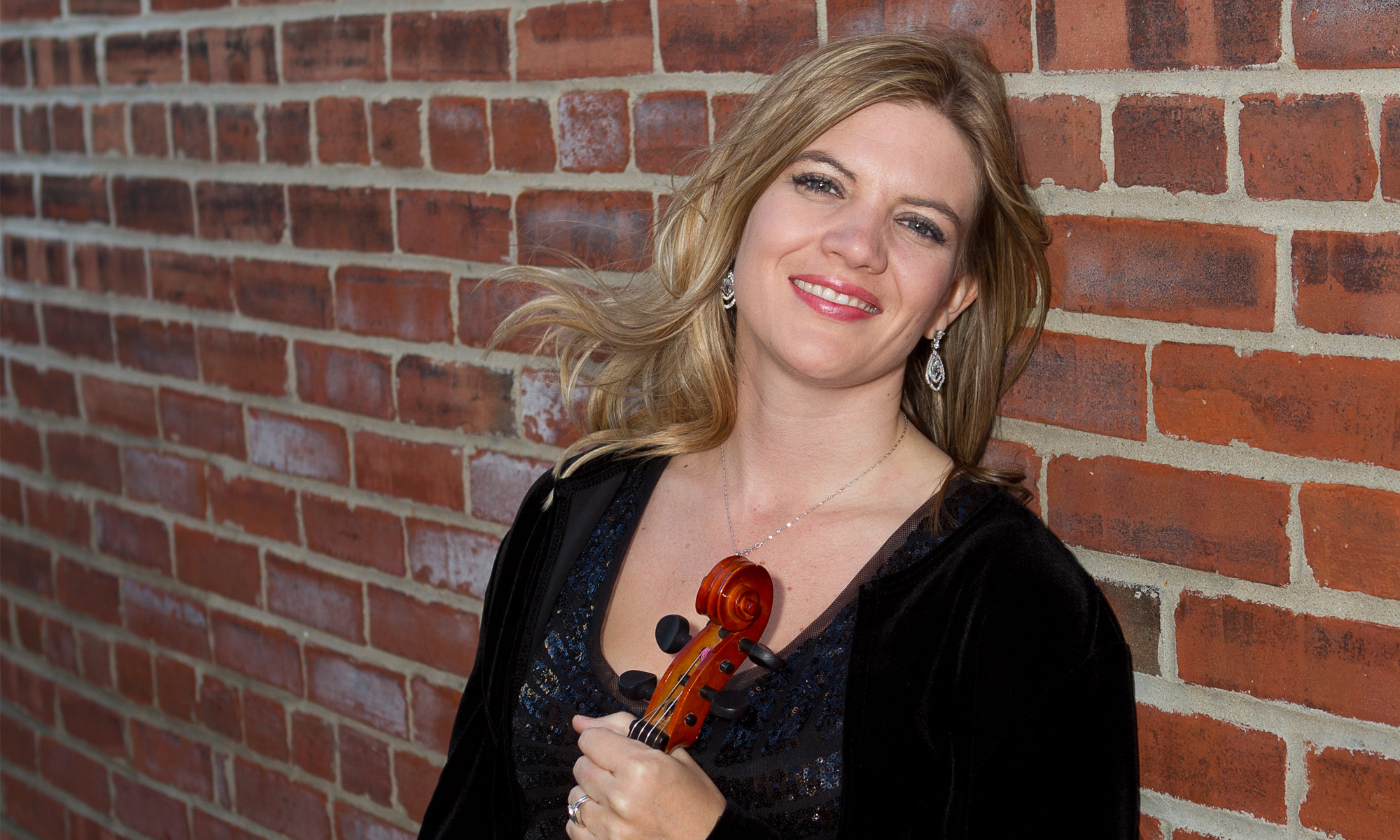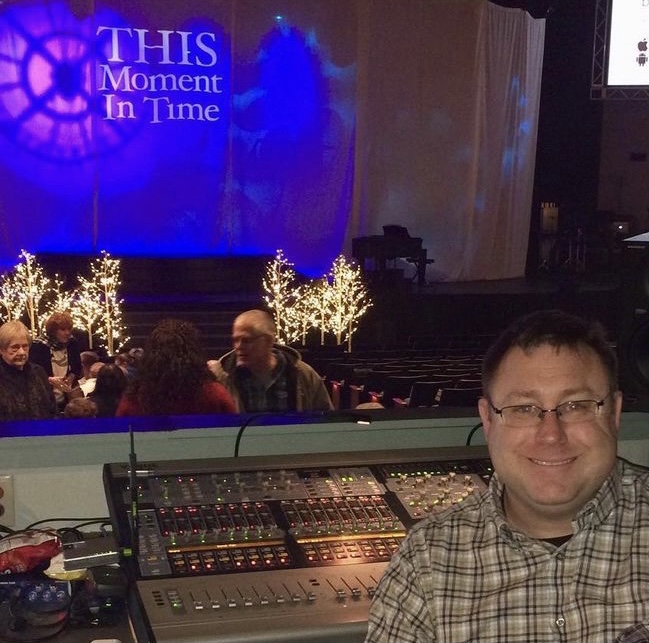Have you ever wondered what goes on behind the scenes of touring artists? Are you a musician with a love of all things tech? Check out this interview I conducted with my cousin Shawn Sullivan while he was on tour hiatus in 2020. Great news, he is now on tour again in 2021!
Shawn, could you share a little bit of your musical background with us?
My professional name is Sully, short for Sullivan. I grew up as a classically trained violinist, even starting to play when I was two years old. Due to severe stage fright, I never had any intention in pursuing a music degree, but I ended up receiving a Bachelor’s Degree in violin performance in Nashville.

Fortunately, when I was in high school a buddy of mine asked if I could run sound for him because I was a musician. He taught me how to work the soundboard and to run sound for his band. Translating what comes off the stage Into a microphone, then mixing board, and finally through the PA system made a lot of sense to me.
When I went to college, I quickly met a band, which was great. I told the people I really liked their music, but their mix was terrible. And they asked, “What do you mean our mix is bad?” I said, “It sounds bad but your music is good.” They asked if I knew how to run sound, and I said yes. And they asked, “Do you know how to fix it?” and I said, “I can try.”
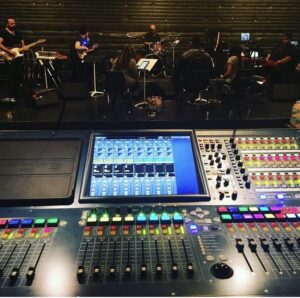
The more I worked with mixing, the more I enjoyed it. I realized that in spite of my stage fright and not enjoying performing, I thought that this would be a great way to still be involved in music without being on stage.
Now I’m now a tour manager and production manager for a couple of big name artists based out of Nashville. One of the artists was an American Idol winner, and now I’m her tour manager, production manager, and house sound manager.
What does that look like?
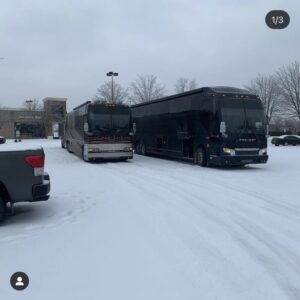
I’m the one who’s in charge of everything after the signing of the contract to the execution of the show. I’m responsible for all aspects of that show coming together, including the transportation, hospitality, production, our personnel, local personnel, local equipment, food, and facilities, as well as accounting. I keep very detailed records.
As a musician myself, I view everything through the eyes of both a musician and a businessman. I make sure that our company is actually making money, and not just spending every dime possible. Sometimes artists struggle to understand the idea versus reality, but in order to be successful, we need both sides. Now I think more on the literal side than the creative side. I don’t involve myself in the creative side unless I am asked. My role is to take the artist’s idea make it a reality if possible. Sometimes I have to say no, we can’t do that because of safety, or because it’s not practical in the available space, or that honestly it’s not a good use of money.
Everything comes at a cost. Each person you bring with you includes three additional daily meals, sometimes an extra flight, an extra spot on the bus, and extra salary. How do you take care of the artist’s needs while balancing the grandiose ideal? It’s always a compromise.
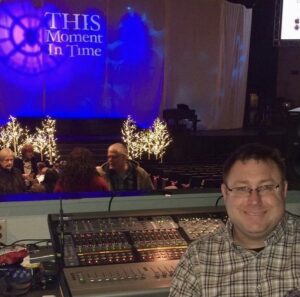
One of my artists usually tours on the East and West Coast at the beginning of every year. The first thing I do when I receive the routing is look at my routes and figure out how to make them fit with my time frame. I have to make sure that we have time to do a show in one location, then the next show the next night, etc. One year we had to bring an extra semi in order to guarantee that we could make it to all the shows. I’m in charge of all the details. I want to make it a fun experience for the listeners and musicians. What happens back stage and on stage makes a difference on how well the show is received by the audience. If we don’t have good food, haven’t slept well, or don’t have showers, things that you really need before going onstage, then the performance is going to suffer. That’s just how it is.
As a result, my catering section is very detailed due to food safety standards to make sure that people aren’t sick on stage. This is very important, and I’m fortunate to have a brother who’s been in the food industry for years. He’s helped me with this part of my rider, so it’s very detailed and easy to follow.
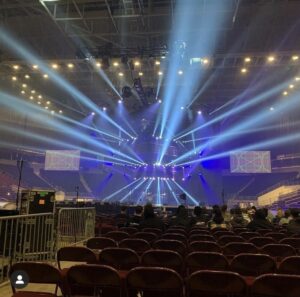
Fortunately, this still allows a lot of creativity. All businesses afford creative aspects that come into play. For example, I still consider how to have dynamics within your mix so that the show doesn’t just make your ears bleed. Also, I make sure that the musicians can hear each other and can communicate correctly, especially with the in ear monitors.
It’s a very fun, fulfilling job, one I never would’ve dreamed of had it not been for my friend who told me that I was a great musician who should run sound.
Lastly, what advice would you give for someone starting out in your field, or considering your field?
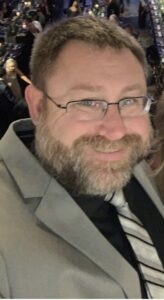
The biggest piece of advice that I would share is don’t give up because it’s hard. Anything worthwhile is a challenge. You have to take time to learn; don’t just assume that you know. Be willing to start at the bottom and work your way up. In Nashville they always say, “Don’t be afraid to be the guy sweeping the floor at the shop.” Be willing to start at the bottom, and once you’re on top, don’t be too good to do the job at the bottom. The person who has the hardest job on tour is the catering guy who has to wash all the dishes. That’s the hardest job, but that job can get your foot in the door. Always be open to learning.
If you prove yourself honest, trustworthy, and hard-working, you can go anywhere and work for anyone. Keep your word when you say that you’re going to do something and take ownership. Failure is not a bad thing if you’re honest about it. Be willing to put yourself out there, and don’t take no for an answer. Just cause you don’t get a job at the first, it might be the seventeenth time. Be diligent until you get that opportunity.
